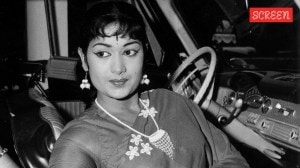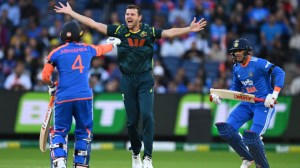Economic summit to focus on Asia
GENEVA, Jan 31: Last year this time and for several years preceding that, the Davos meeting of international business, finance and politics ...

GENEVA, Jan 31: Last year this time and for several years preceding that, the Davos meeting of international business, finance and politics held up the Asian tigers as examples of miracles to emulate. Today as the tigers have turned into domestic cats, the word is Davos is “I told you so”, followed by theories on how these economies are not built on western principles of free trade, rigorous financial regulations and of course, the ubiquitous human rights.
Asia is in focus this year as the high priests of international business meet for another annual session of the World Economic Forum (WEF), but the adulatoy adjectives have disappeared. Globalisation is still the main story, but the spin is that the single most important challenge facing the world concerns managing interdependence and volatility. That is the theme this year. For example, what is the link between your milkman, the Asian crisis, pollution, and the IMF? Tell Davos their predictions were widely off the mark and you will be called aspoilsport.
Mexico is another case in point. It was a star attraction one year and international financers and analysts including Moody’s urged the world to pour money into Mexico’s strong economy. Six months later the peso crashed, Mexico was in shambles and the Davos crowd switched off the lights on that country after saying “I told you so.”
“This is a rich man’s club,” India’s most famous economist abroad Dr. Manmohan Singh said once during his brief visit to Davos. The rich see the poor as a burden, a drain on the economy, as numbers that are economically unviable. More recently, French President Jacques Chirac publicly criticised what he said was the “davosisation” of the world economy referring to the talk-shop that had no moorings in reality.
The annual summit of the WEF that meets in the Swiss village of Davos this time of the year is more a social event and less an economic forum. It is a nice place to go to if you have money to throw and feel insecure about being left out of the party.Started in 1971 by Klaus Schwab, a Swiss professor of management to provide businessmen a focal point to work the international marketplace, Davos has over the years become synonymous with high-powered networking among corporations, governments and academia many of whom stop here to pick up business and political trends, float their own, chat, gossip and ski. In Davos you can buy anything from ice-cream vending machines to cars to structural adjustment mantras, shake the hand that sold a million jeans or wears the most diamonds.
In Davos, the powerful look for glory. Those with glory want to sit next to power. It is an interesting phenomenon. Everybody is somebody and nobody here at the same time. Important people come to Davos because other important people come to Davos. It’s unclear how much real business gets done here. The forum which asks businesses to pay anything between $14,500 to $17,000 in annual dues in addition to $ 8000 to attend the forum is by invitation only. Businessmen say they can packinto three days of Davos several trips around the world. Ditto for politicians who come here to stay in touch with other politicians over a glass of wine or on a ski slope and make grand statements.
One Indian politician said the gathering was a smarter version of an AICC session. This is called the globalisation of politics. India’s finance minister at the last summit said his target was to attract $10 billion in foreign investments. Everyone clapped and then went home. Currently, less than $2 billion is floating towards India. Not that it matters. In Davos, nothing matters.
However, there is a perceptible shift in informed circles towards issues that Davos is silent about or addresses in passing. What you will not hear in Davos is that two thirds of the world, that is to say the bottom 20 per cent of the rich countries and the bottom 80 per cent of poor countries including India cannot find jobs in this version of the globe. There is increasing evidence to show that globalisation has spawned inequalitybetween and within nations.



- 01
- 02
- 03
- 04
- 05




























